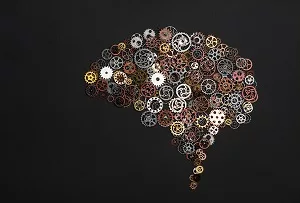One question often asked about traumatic brain injuries is whether a victim can recover damages if he or she willingly participated in the activity that resulted in the TBI. This is especially important in sports-related TBI cases, when a player may suffer a concussion or worse during rough play.
A recent article notes that the widow of a former University of Southern California player is currently involved in suing the NCAA for failure to protect Matthew Gee from repeated head trauma. Alana Gee claims that the NCAA’s negligence led to Gee’s death in 2018 from brain damage.
Gee’s lawsuit is only the second to go to trial regarding chronic traumatic encephalopathy due to sports injuries and may be the first to reach a jury. The NCAA claims it is not responsible for Gee’s death, citing his alleged use of drugs and alcohol as contributing factors.
The Epidemic of Sports-Related TBIs
Statistics show that there are as many as 3.8 million traumatic brain injuries each year in the United States; approximately one in 10 are due to sports activities. For children and adolescents, as many as 25 percent of all TBIs are sports-related. These injuries range from minor bumps to fatal head injuries. Concussions are one of the most common types of TBIs received during contact sports activity and often do not cause lifelong harm, especially if they are identified and treated quickly.
However, some types of traumatic brain injury are much more serious. CTE, or chronic traumatic encephalopathy, is a long-term, often fatal condition that results from repeated blows to the head. A research study from Boston University found that 87 percent of deceased football players had signs of CTE. This means that the majority of people playing college or professional football who suffer a TBI may be at risk for a degenerative, fatal brain disease.
Can Sports Players Recover Damages for TBI?
Currently, most players who are able to recover damages for TBIs can do so as a result of overt negligence on the part of the governing entity, school, coach or other person or organization. In these cases, it is clear that those responsible for evaluating and recommending treatment for TBI failed to do their jobs. However, it is less clear if repetitive, long-term TBIs are grounds for recovering damages. The Gee lawsuit is the latest that seeks to settle this issue.
Most victims will not suffer multiple TBIs while playing sports. In childhood sports, for example, getting a TBI is often enough for parents to remove the player and ensure no further harm is done. However, if someone is involved in professional or college-level sports, in which playing the sport is more than simply a hobby but a means of maintaining a scholarship or making a living, the liability for continued head injuries is less clear.
If you have suffered a traumatic brain injury while playing a sport, it is important to protect your rights. Give Barber & Associates a call today to learn more about what you can do to ensure that your TBI is treated properly.
